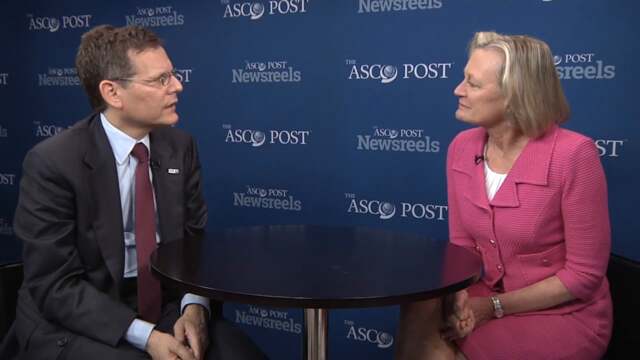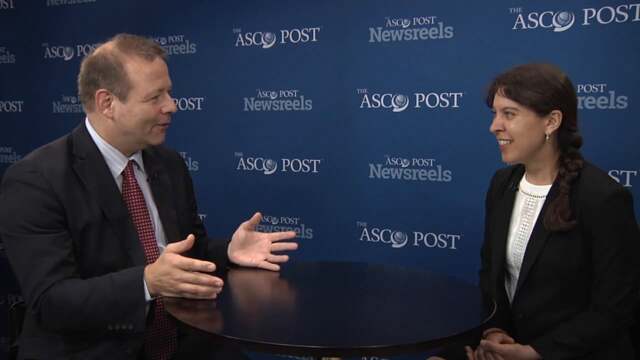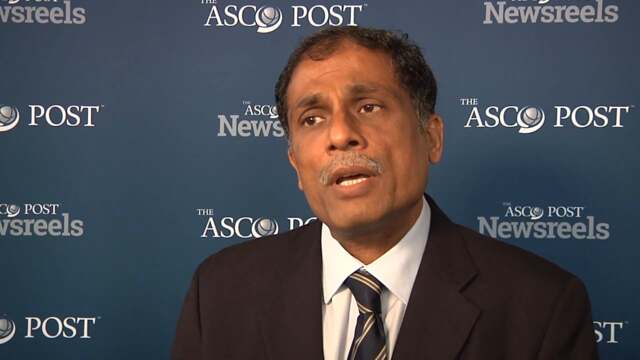Tony Mok, MD, and James O. Armitage, MD, on The Current State of Cancer Research and Treatment: The Asian Perspective
2015 ASCO Annual Meeting
James O. Armitage, MD, of the University of Nebraska Medical Center, and Tony Mok, MD, of The Chinese University of Hong Kong, discuss oncology from an international point of view.
John L. Marshall, MD
John L. Marshall, MD, of Georgetown University, discusses how the cost of care affects behavior and decision-making on the part of patients and oncologists.
Julie Gralow, MD and Clifford A. Hudis, MD
Julie Gralow, MD, of the University of Washington/Seattle Cancer Care Alliance, and Clifford A. Hudis, MD, of Memorial Sloan Kettering Cancer Center, discuss this important SWOG trial and why oral bisphosphonates should be made available in the United States (Abstract 503).
Chloe Evelyn Atreya, MD, PhD, and Axel Grothey, MD
Chloe Evelyn Atreya, MD, PhD, of the University of California, San Francisco, talks with Axel Grothey, MD, of the Mayo Clinic, about new data on trametinib, dabrafenib, and panitumumab in patients with the BRAF V600E mutation and vemurafenib plus irinotecan and cetuximab in BRAF-mutated metastatic colorectal cancer (Abstracts 103 and 3511).
Jedd Wolchok, MD, PhD, and Anthony J. Olszanski, RPh, MD
Anthony J. Olszanski, RPh, MD, of Fox Chase Cancer Center, and Jedd Wolchok, MD, PhD, of Memorial Sloan Kettering Cancer Center, discuss therapies for treatment-naive patients with advanced melanoma (Abstract LBA1).
Anil D’Cruz, MD
Anil D’Cruz, MD, of Tata Memorial Hospital, discusses results from his study that seem to resolve a 50-year-long debate on performing elective neck dissection at the time of primary surgery––a potentially practice-changing finding (Abstract LBA3).





